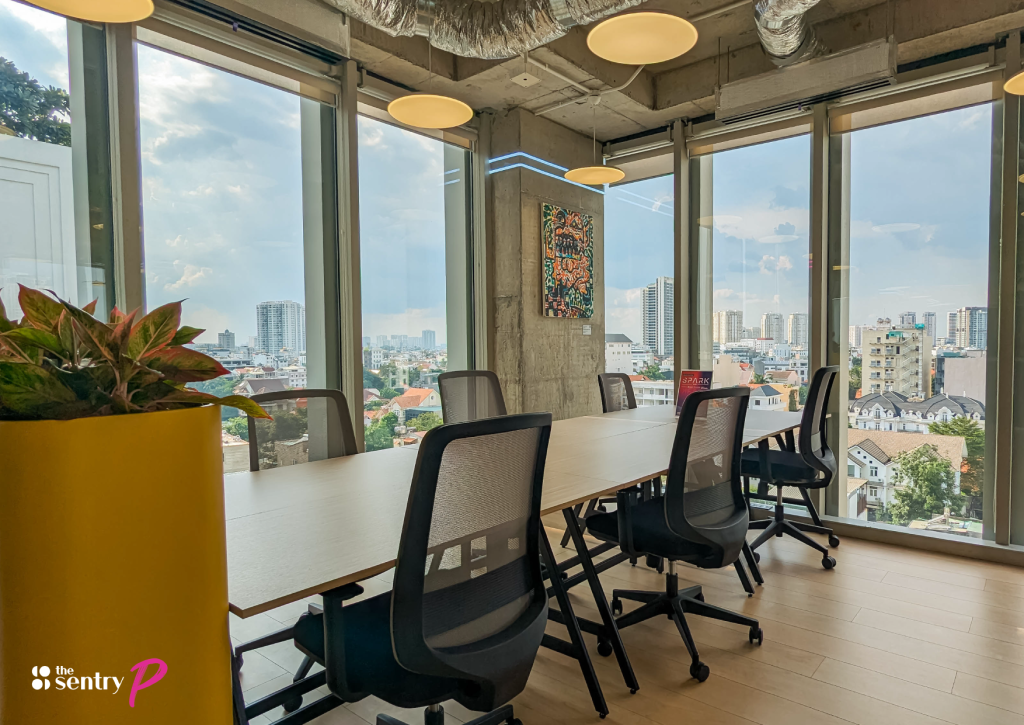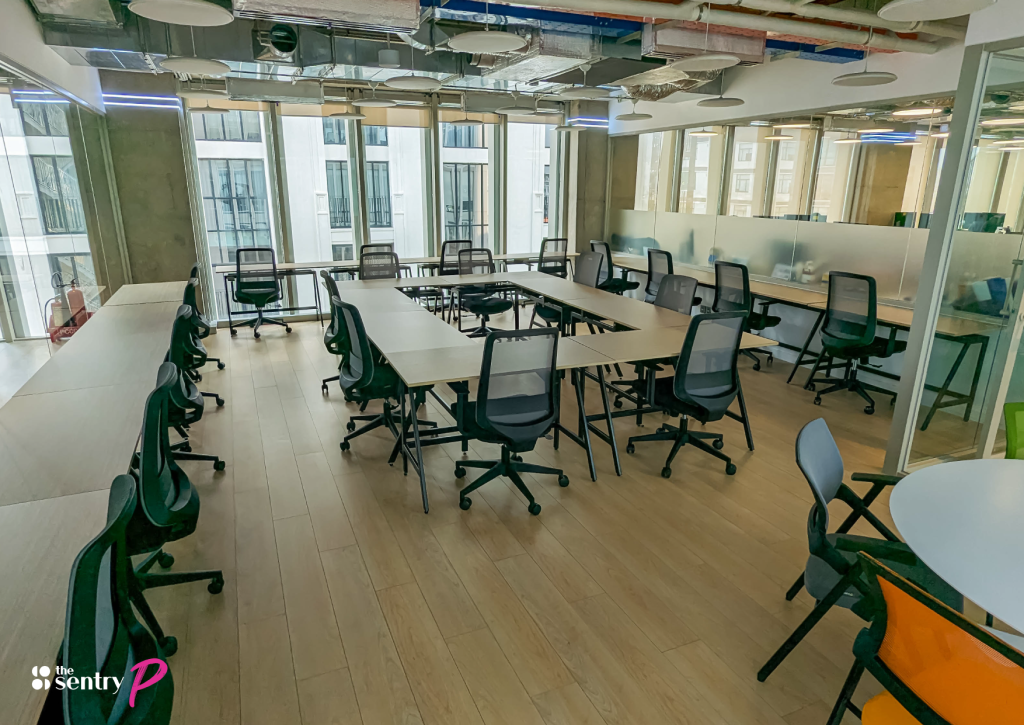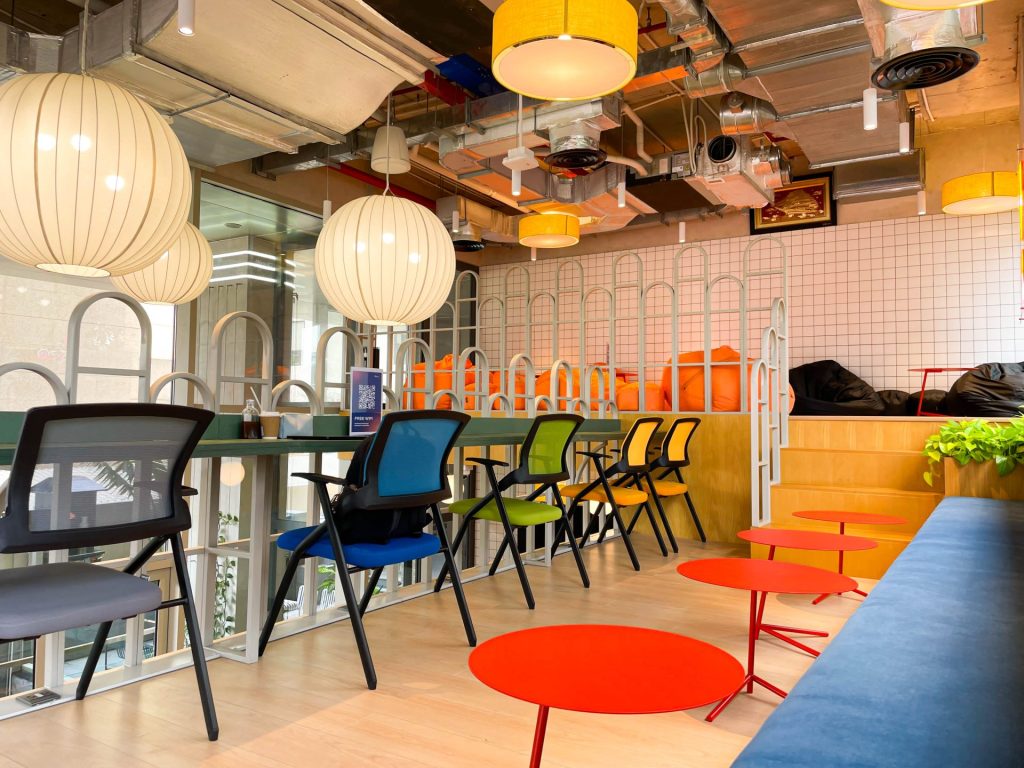7 Types of Companies in Vietnam: A Simple Guide
Vietnam has become one of the most attractive destinations for foreign investors and entrepreneurs looking to expand into Southeast Asia. Its growing economy, strategic location, and increasingly open business environment have made it an appealing option for anyone considering setting up a business.
However, like any country, there are legal considerations to take into account, particularly when it comes to choosing the right business structure. There are various types of companies in Vietnam, each with its own rules, advantages, and limitations.
This article will break down the main types of companies in Vietnam, providing a clear, approachable guide to help you decide which is the most suitable for your needs. Whether you’re starting a small venture or looking to establish a large corporation, understanding the different legal structures is a necessary step.
>>> Read more: A Guide for Doing Business in Vietnam
How Many Types of Companies in Vietnam Are There?

Let’s explore the main types of companies in Vietnam, their characteristics, and the pros and cons that come with each type.
1. Private Enterprise (Sole Proprietorship)
In Vietnam, a Private Enterprise, also known as a Sole Proprietorship, is a type of company where a single person owns and manages the entire business. This is the simplest and most straightforward type of business structure available. The individual owner is personally responsible for all aspects of the business, including its debts and liabilities. This means that if the company faces financial trouble, the owner’s personal assets (like a house or car) could be used to pay off those debts.
This type of business is popular among small-scale traders, service providers, or freelancers who want to start small and don’t need a complicated corporate structure. It’s particularly attractive to those who want full control of their operations.
In Vietnam, setting up a Private Enterprise is relatively easy, and it doesn’t require a lot of legal documentation or capital. The owner can make decisions quickly without needing to consult others, and the process to register the business can usually be done in a few days.
However, the business and the owner are considered one and the same in legal terms, meaning there’s no separation between personal and business assets. The lifespan of this type of company is also directly tied to the owner. If the owner passes away or decides to close the business, the company is dissolved.
For people looking to grow a larger business or bring in outside investors, this type of company might not be the best fit, as it doesn’t provide the same scalability or protection as other business types.
Pros:
- Complete control over business decisions and operations.
- Simple and inexpensive to establish with minimal legal requirements.
- Direct access to all profits without sharing with partners or shareholders.
- Flexible management structure allowing for quick decision-making.
- Personal satisfaction from building and running the business independently.
Cons:
- Unlimited liability exposes personal assets to business debts and legal actions.
- Limited ability to raise capital, often relying solely on personal funds.
- Business continuity is uncertain if the owner becomes incapacitated or decides to exit.
- Sole responsibility for all aspects of the business can lead to burnout.
- Difficulty in attracting and retaining talented employees without equity incentives.
2. Limited Liability Company (LLC)
A Limited Liability Company (LLC) is one of the most common business structures in Vietnam and is particularly appealing to small and medium-sized enterprises. There are two types of LLCs in Vietnam:
- Single-member LLC
- Multi-member LLC
In an LLC, the owners, known as members, have limited liability, which means they are only responsible for the company’s debts up to the amount they have invested. This separates personal and business finances, offering more protection to the owners.
LLCs are flexible and can operate in most sectors in Vietnam, making them a versatile choice for different kinds of businesses. The structure is a great fit for companies that want to grow but are not ready to go public or bring in a large number of investors. Multi-member LLCs are often used for businesses with partners, where each member owns a percentage of the company based on their investment.
Setting up an LLC requires more paperwork and a higher level of legal structure than a sole proprietorship, but it’s still manageable for most entrepreneurs. One of the reasons many choose an LLC is the limited liability, which protects personal assets from business-related risks.
LLCs in Vietnam are popular because they strike a balance between personal protection and flexibility, especially for businesses that don’t want the complexity of a Joint Stock Company or the risks of a sole proprietorship.
Pros:
- Protection of personal assets from business liabilities, limiting financial risk.
- Flexible management structure with the ability to choose between member-managed or manager-managed.
- Pass-through taxation can prevent double taxation on profits.
- Enhanced credibility with customers and partners compared to sole proprietorships.
- Ability to bring in new members to raise additional capital without dissolving the company.
Cons:
- More complex and costly to set up compared to a sole proprietorship.
- Ongoing compliance requirements, such as annual reports and fees.
- Potential for conflicts among members regarding business direction and profit distribution.
- Limited lifespan in some jurisdictions if a member leaves or passes away.
- Possible restrictions on the types of businesses that can form an LLC.
3. Joint Stock Company (JSC)
A Joint Stock Company (JSC) is typically the go-to structure for larger businesses or those that plan to raise a significant amount of capital through shareholders.
In Vietnam, to establish a JSC, you need at least three shareholders, and there’s no maximum limit on the number of shareholders. This allows companies to grow rapidly and potentially go public by offering shares to the public through the stock exchange.
JSCs are structured in a way that divides ownership into shares of stock, and each shareholder owns a portion of the company based on how many shares they hold. This makes it easier to raise funds because you can sell shares to investors without giving them direct control over the day-to-day running of the business. JSCs also allow for the easy transfer of shares, meaning ownership can change hands without too much red tape, unlike other business models where ownership is more rigid.
Because of their complexity and the large amount of capital they can attract, JSCs are often used for bigger ventures like large manufacturing companies, tech firms, and enterprises looking to expand internationally.
However, running a JSC comes with a significant amount of regulatory oversight and internal governance to manage shareholder relations, reporting requirements, and compliance with Vietnam’s business laws.
Pros:
- Ability to raise substantial capital through the sale of shares to the public or private investors.
- Limited liability protects shareholders’ personal assets beyond their investment in shares.
- Enhanced ability to attract high-quality talent by offering stock options.
- Perpetual existence ensures business continuity regardless of changes in ownership.
- Increased market presence and credibility, facilitating larger business opportunities.
Cons:
- Significant regulatory and compliance obligations, including regular financial disclosures.
- High costs associated with the formation and ongoing administration of the company.
- Potential loss of control for original owners as more shareholders join the company.
- Complex decision-making processes due to the involvement of multiple shareholders.
- Vulnerability to hostile takeovers if shares are publicly traded.
4. Partnership
A Partnership is another business structure commonly used in Vietnam, and it generally involves two or more people who agree to run a business together. There are two types of partnerships: general partnerships and limited partnerships. In a general partnership, all partners share equal responsibility for the business’s operations, debts, and legal obligations. This means that partners have to work closely together and trust each other to manage the business effectively.
In a limited partnership, there’s a difference between general partners and limited partners. General partners are involved in the daily running of the business and take on full liability, while limited partners simply invest in the business without having much say in how it’s managed. Limited partners also enjoy limited liability, meaning they are only responsible for debts up to the amount they invested.
Partnerships are typically used by smaller businesses, professional services firms (like law offices or accounting firms), or family businesses. The partnership model offers flexibility in terms of dividing roles and responsibilities among partners. However, it’s important for partners to have clear agreements in place regarding how profits, losses, and management duties will be shared to avoid future disputes.
Pros:
- Combined skills, expertise, and resources of multiple partners can enhance business operations.
- Shared financial burden reduces the individual investment required to start the business.
- Diverse perspectives can lead to more innovative solutions and strategies.
- Flexibility in management and operational roles based on partners’ strengths.
- Simplified decision-making process compared to corporations with many shareholders.
Cons:
- Joint and several liabilities can make each partner responsible for the full amount of business debts.
- Potential for disagreements and conflicts among partners, which can disrupt business operations.
- Profit sharing may lead to dissatisfaction if contributions are perceived as unequal.
- Difficulty in transferring ownership interests, especially in the absence of a buy-sell agreement.
5. Foreign-Owned Enterprises (FOE)
Foreign-Owned Enterprises (FOEs) are businesses that are wholly or partially owned by foreign investors. Vietnam has been encouraging foreign investment through various reforms, and FOEs have become a popular choice for international businesses looking to tap into the local market.
FOEs can either be 100% foreign-owned or joint ventures, where foreign investors partner with local businesses. They are governed by Vietnam’s Law on Enterprises and the Law on Investment.
FOEs can operate in a wide range of sectors, from manufacturing to services, depending on the business’s goals and the legal framework in Vietnam. Some industries, like telecommunications or energy, might have restrictions on 100% foreign ownership, requiring joint ventures with local firms.
Setting up an FOE in Vietnam requires a bit more paperwork and approval from various government bodies, but it offers foreign investors the opportunity to fully control or significantly influence their business operations in the country.
Many international companies that aim to establish a long-term presence in Vietnam prefer this structure because it allows them to have full control over the direction and management of the business.
Pros:
- Access to the Vietnamese market with the support of local business practices and networks.
- Ability to leverage local knowledge and expertise through partnerships with Vietnamese entities.
- Potential tax incentives and benefits offered to foreign investors in certain sectors.
- Enhanced brand reputation by associating with international standards and practices.
Cons:
- Navigating complex legal and regulatory requirements specific to foreign businesses.
- Higher initial setup costs and ongoing compliance expenses compared to local companies.
- Cultural and language barriers can pose challenges in daily operations and negotiations.
- Potential restrictions on ownership and control in certain regulated industries.
6. Representative Office
A Representative Office (RO) is a business structure that allows foreign companies to have a presence in Vietnam without engaging in direct commercial activities.
This setup is primarily used by businesses that want to explore the market, promote their products or services, or handle tasks like market research and liaising with local partners. It’s important to note that a Representative Office cannot generate income or conduct direct business transactions in Vietnam.
Setting up an RO is relatively straightforward, and it’s a popular option for companies that are not ready to fully commit to operating in Vietnam but want to get a feel for the market and build local relationships.
The RO is legally limited to non-commercial activities, which means it can’t sign contracts or handle import/export operations on behalf of the parent company. However, it’s a great way to establish a foothold in the country before transitioning into a more formal business structure.
Representative Offices are often used by companies in sectors like technology, manufacturing, or consulting who want to assess business opportunities or build connections before making a bigger financial commitment.
Pros:
- Low-cost entry into the Vietnamese market without the need for significant capital investment.
- Ability to conduct market research, establish brand presence, and build local relationships.
- Simplified regulatory requirements compared to full-fledged business entities.
- No requirement to generate revenue, reducing financial pressures during the exploratory phase.
- Flexibility to transition to a different business structure as market understanding improves.
Cons:
- Inability to engage in direct commercial activities, limiting revenue generation opportunities.
- Dependence on the parent company for funding and strategic direction, which may limit local responsiveness.
- Restrictions on hiring local staff, which can affect the effectiveness of operations.
- Limited scope of activities may hinder the establishment of a strong market presence.
- Necessity to eventually establish a more permanent business structure to capitalize on market opportunities.
7. State-Owned Enterprises (SOE)
State-Owned Enterprises (SOEs) are businesses owned or significantly controlled by the government of Vietnam. These companies were once the dominant players in the economy, particularly in sectors like energy, infrastructure, transportation, and telecommunications.
Although Vietnam has moved towards a more market-oriented economy over the past few decades, SOEs still play a critical role in many key industries.
SOEs operate under government policies, and their primary objectives often include not only profitability but also serving broader social, economic, and political goals. While some SOEs have undergone privatization efforts and sold shares to private investors, many remain under majority state ownership, ensuring that the government maintains control over strategic sectors.
Here’s the updated table with pros and cons included for each company type. I’ve varied the number of pros and cons to keep things concise and avoid repetition.
Pros:
- Strong backing from the government provides financial stability and access to resources.
- Priority in securing government contracts and involvement in key infrastructure projects.
- Often enjoy monopolistic advantages in certain sectors, reducing competition.
- Enhanced credibility and trust from the public and other businesses due to government association.
Cons:
- Bureaucratic inefficiencies can slow down decision-making and operational processes.
- Limited incentives for innovation and competitiveness compared to private sector counterparts.
- Political interference may influence business strategies and priorities, potentially misaligning with market needs.
>>> Read more: How to Start a Business in Vietnam
Comparison between Types of Companies in Vietnam
|
Type of Company |
Ownership Structure | Liability | Ease of Setup |
Ideal For |
| Private Enterprise |
Single Owner |
Unlimited | Simple |
Small, independent businesses |
| Limited Liability Company |
Single/Multiple Owners |
Limited to capital invested | Moderate |
Small-to-medium businesses |
| Joint Stock Company |
Multiple Shareholders |
Limited to capital invested | Complex |
Large businesses, public companies |
| Partnership |
Two or more partners |
Varies by partner type | Moderate |
Businesses requiring pooled resources |
| Foreign-Owned Enterprise |
Foreign investor(s) |
Limited to capital invested | Complex |
Foreign businesses expanding to Vietnam |
| Representative Office |
Foreign parent company |
Not applicable (no revenue) | Simple |
Market research, promotion |
| State-Owned Enterprise |
Government |
Limited, backed by the state | Complex | Key sectors (energy, telecom, etc.) |
Choosing the Right Company Type for Flexibility and Growth
The type of business you set up in Vietnam plays a huge role in how flexible and scalable your operations can be. Whether you’re flying solo as a small business owner or you’re a foreign investor looking to make a mark, the company structure you choose matters.
Something else worth thinking about is how workspaces are changing. Coworking spaces, in particular, have become a big deal. They offer an affordable and flexible office solution, which is great for businesses that want to stay agile and keep overheads low. Let’s dive into how different company types in Vietnam can link up with coworking spaces and how these spaces can actually help your business grow.
>>> Read more: What is The Hybrid Work Model and Why Do Employees Want It?
How Coworking Spaces Work for Different Types of Companies in Vietnam
Coworking spaces aren’t just for freelancers or tiny startups anymore.
Companies of all sizes are now using flexible office setups to save money and improve teamwork. The short-term leases, shared resources, and the chance to connect with other professionals can be really useful, especially for businesses that are still figuring things out or growing fast.
Private Enterprise and Coworking

For private enterprises (sole proprietorships), coworking spaces make a lot of sense. They’re cheap and easy to access, so there’s no need to lock yourself into a long office lease when you’re just getting started. It’s a huge help for small businesses trying to manage their cash flow. Plus, coworking spaces are perfect for networking and connecting with other entrepreneurs and potential clients in the same space.
Limited Liability Company (LLC) and Coworking

Small LLCs can really benefit from coworking spaces, too. They get a professional workspace without the hefty price tag of a private office. This is especially helpful for multi-member LLCs where team members need to meet up occasionally. Meeting rooms, event spaces, and shared facilities make coworking a smart option for businesses that need flexibility but still want a professional setting.
Joint Stock Company (JSC) and Coworking

For larger companies like Joint Stock Companies (JSCs), coworking spaces can still be useful, especially when expanding into new markets. If a JSC is setting up in a new city or region, coworking spaces are an easy way to dip a toe in without committing to expensive office leases. It’s a low-risk way to test the waters, hire a local team, and see if the market is worth a bigger investment later on.
Foreign-Owned Enterprises (FOE) and Coworking

Foreign-owned enterprises face a lot of hurdles when entering new markets, like navigating the local business scene and figuring out property laws. Coworking spaces can solve some of these problems. They provide a ready-made office environment where foreign companies can operate immediately, while also offering networking opportunities with other businesses. This gives them a soft landing in the Vietnamese market without having to jump through too many hoops.
Representative Office and Coworking

For businesses setting up a Representative Office in Vietnam, coworking spaces are a no-brainer. Since ROs don’t actually sell products or make money, there’s no need for a big permanent office. A coworking space provides everything they need to do market research, promote their brand, and get familiar with the local business culture, all without sinking too much money into office infrastructure.
Find Your Ideal Workspace at The Sentry
When thinking about the type of company you want to set up in Vietnam, coworking spaces like The Sentry can make everything easier and more flexible. Whether you’re going solo with a private enterprise, forming an LLC, or even just setting up a representative office, our coworking spaces give you the freedom to scale up or down without the headache of long leases or expensive overheads.

At The Sentry, we don’t just provide desks—we create a community. For smaller businesses or freelancers, it’s the perfect spot to connect, collaborate, and build relationships that can help your business grow.
If you’re a bigger company looking to test the waters in a new market or city, our flexible options give you room to explore without committing to a full-blown office setup. Or if you only need a hot desk for the day or a private office for your team, we’ve also got you covered!
Want to see how The Sentry can work for your business? Book a tour today and check out our coworking spaces.
YOU MAY BE ALSO INTERESTED IN
How To Build Strong Communities Through Events
We live in a time where we are more connected online than ever before. You can send a message to a friend in London while you sit in a coffee shop in Ho Chi Minh City. We have video calls and instant messaging apps that keep us in touch every minute of the day. Yet […]
How to Choose the Right Coworking Membership
Choosing a coworking membership sounds simple until you actually start looking. You realize quickly that “coworking” is a broad term covering everything from coffee shops with fast internet to high-end corporate suites with concierge service. Some spaces feel like vibrant libraries; others feel like networking mixers that happen to have desks. Some are perfect for […]
The Role of Ergonomics in Coworking Spaces
Did you know that the average office worker spends about 1,700 hours a year sitting in front of a computer screen? It is no surprise that many of us go home with stiff necks and aching backs. We often accept this discomfort as a normal part of having a job. We think that tiredness and […]

Interested in this location?
Complete the form below to book a tour or connect with one of our team members to find out more.



